
Sponsored by the Office of Naval Research
Congratulations to the Entire PEP Community!
Each team at Pohick Bay did an amazing job persevering through challenges and finding ways to maximize success. Thank YOU for making PEP successful!
The 2022 competition reflected the spirit of the PEP competition--cooperation, flexibility, and determination. As we support teams, it is inspiring to watch these teams plan with vision, work together to accomplish tasks, problem solve while integrating systems, and perform the race-day activities necessary to make the boat successful. When we look back at the event, the mishaps and challenges raise to the forefront of our minds, not to emphasize the negative, but to celebrate the engineering challenges conquered. Each competition day includes surprises and unforeseen issue. Thankfully, this competition day involved a dozen teams and about hundred teammates working tirelessly to make the day a success.
For each team that attended PEP 2022, we thank you for your hard work, kind spirit, and engineering accumen. We know that the future teams are looking to you as role models and sources of inspiration--as they should, your work is inspirational.
Click to jump to your favorite section.
Zoom in on the PEP 2022 Community
Scroll right, or download the whole image to explore the image.
Welcome Messages for PEP 2022
Dr. Steven Russell, Office of Naval Research (ONR)
ONR has backed PEP from its original ideation, and Dr. Russell has been the primary force providing the guidance and structure that has allowed PEP to flourish.
CAPT Dale Lumme, USN (Ret.), American Society of Naval Engineers (ASNE)
CAPT Lumme works to connect the PEP program with industry so it can continue support the development of the future workforce.
The Top 3 Finishers
We truly believe each team that made it to Pohick Bay succeeded. These six teams had the best times on competition day!
Manned Competition
2022 Manned Champions: Washington College
Time: 5 miles in 22:23
The Washington College team is a well-organized, gracious group of engineers and problem solvers. Their craft was designed to handle the exciting Wye Island Challenge, which has a 24-mile course, so the five-mile PEP course was well within their sights. This beautiful wooden hull cut through the water during the first manned heat with no issues (even taking a victory lap!). The drone footage of this race was an exciting addition to the post-race documentation and reflected all the ways Brian Palmer supports Washington College students in their design, ideation, and creation processes.
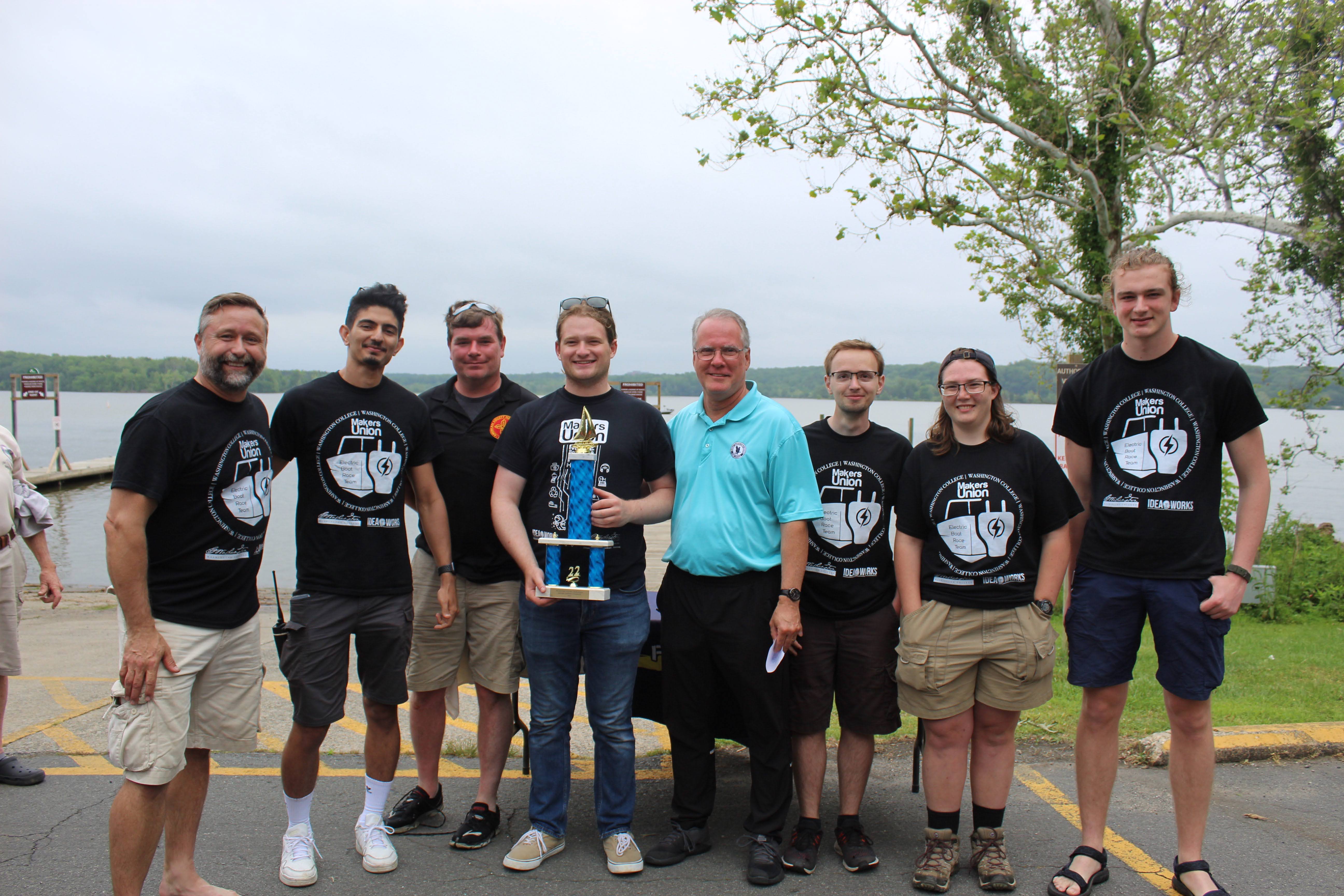 Throughout the day, Washington College assisted with the PEP race and provided stupendous help to all participants. We are so thankful this group of gracious leaders joined the PEP community this year, and we look forward to seeing where this collaborative spirit takes us in the years ahead.
Throughout the day, Washington College assisted with the PEP race and provided stupendous help to all participants. We are so thankful this group of gracious leaders joined the PEP community this year, and we look forward to seeing where this collaborative spirit takes us in the years ahead.
To sponsor this team, please contact the Maker Space Director, Brian Palmer, at bpalmer2@washcoll.edu
2022 Manned 2nd Place: Old Dominion University
Time: 4.75 miles in 25:29
The mighty, dedicated ODU team improved on their 2021 competition with an exciting second place finish in 2022. 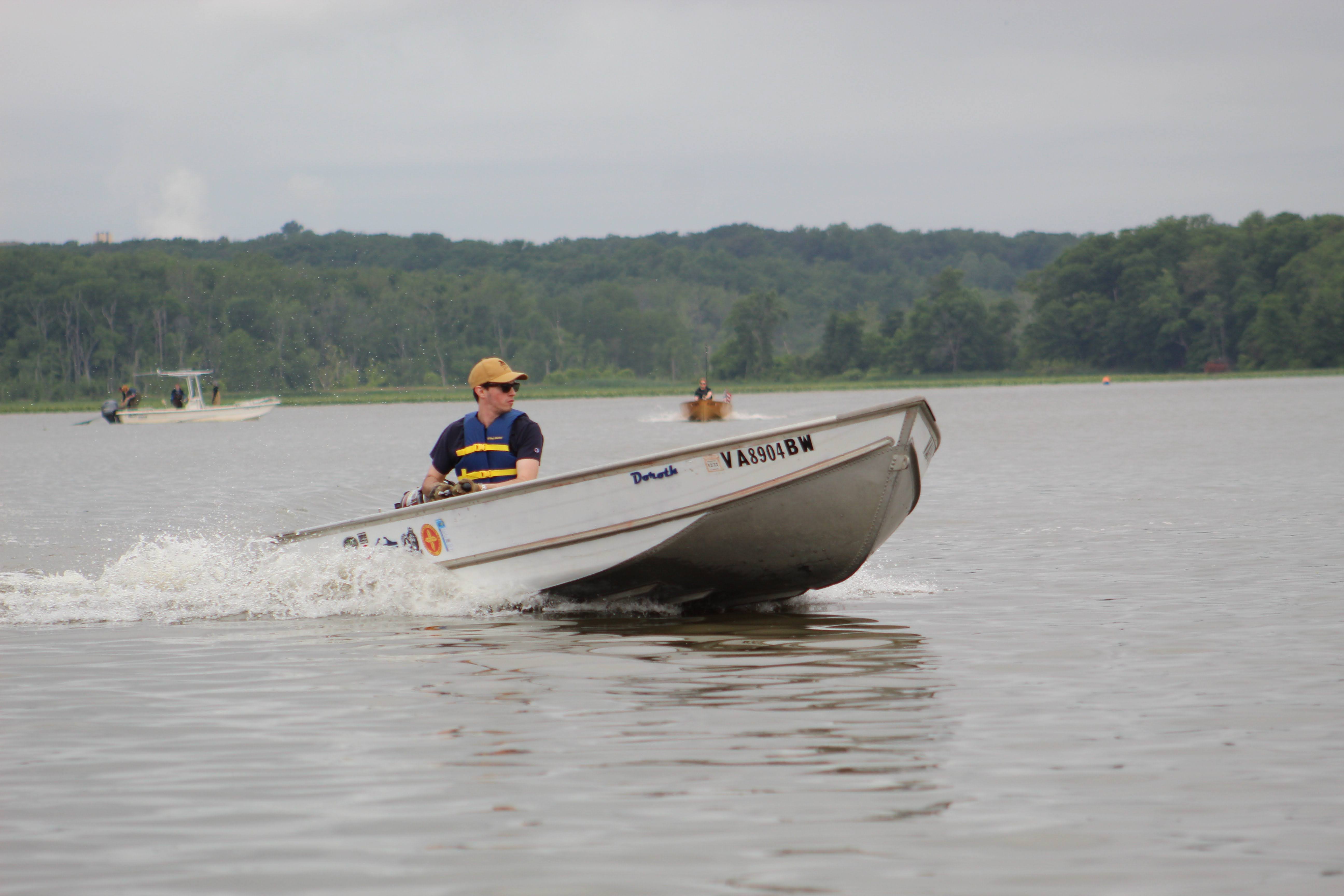 The team worked hard to upgrade this design while also supporting other ODU teams competing in two other engineering competitions. This foundational understanding of taking the challenge, designing a solution, improving upon those designs iteratively has served the ODU teammates well for the last couple of years. Their ability to collaborate within their team and across the PEP community is a special quality that greatly strengthens our future and their professional skills.
The team worked hard to upgrade this design while also supporting other ODU teams competing in two other engineering competitions. This foundational understanding of taking the challenge, designing a solution, improving upon those designs iteratively has served the ODU teammates well for the last couple of years. Their ability to collaborate within their team and across the PEP community is a special quality that greatly strengthens our future and their professional skills.
We are so excited to bring the PEP competition to their backyard in 2023. We know that the strong community that supports this team, for Dr. Jovanovich and Dr. Dean to Mr. Kosteczko and the entire Tidewater section, will continue to help this team grow and thrive. See you in Portsmouth!
To support this ASNE section/PEP Team, see their website or contact the team directly.
2022 Manned 3rd Place: University of Pittsburgh
Time: 3.00 miles in 37:13
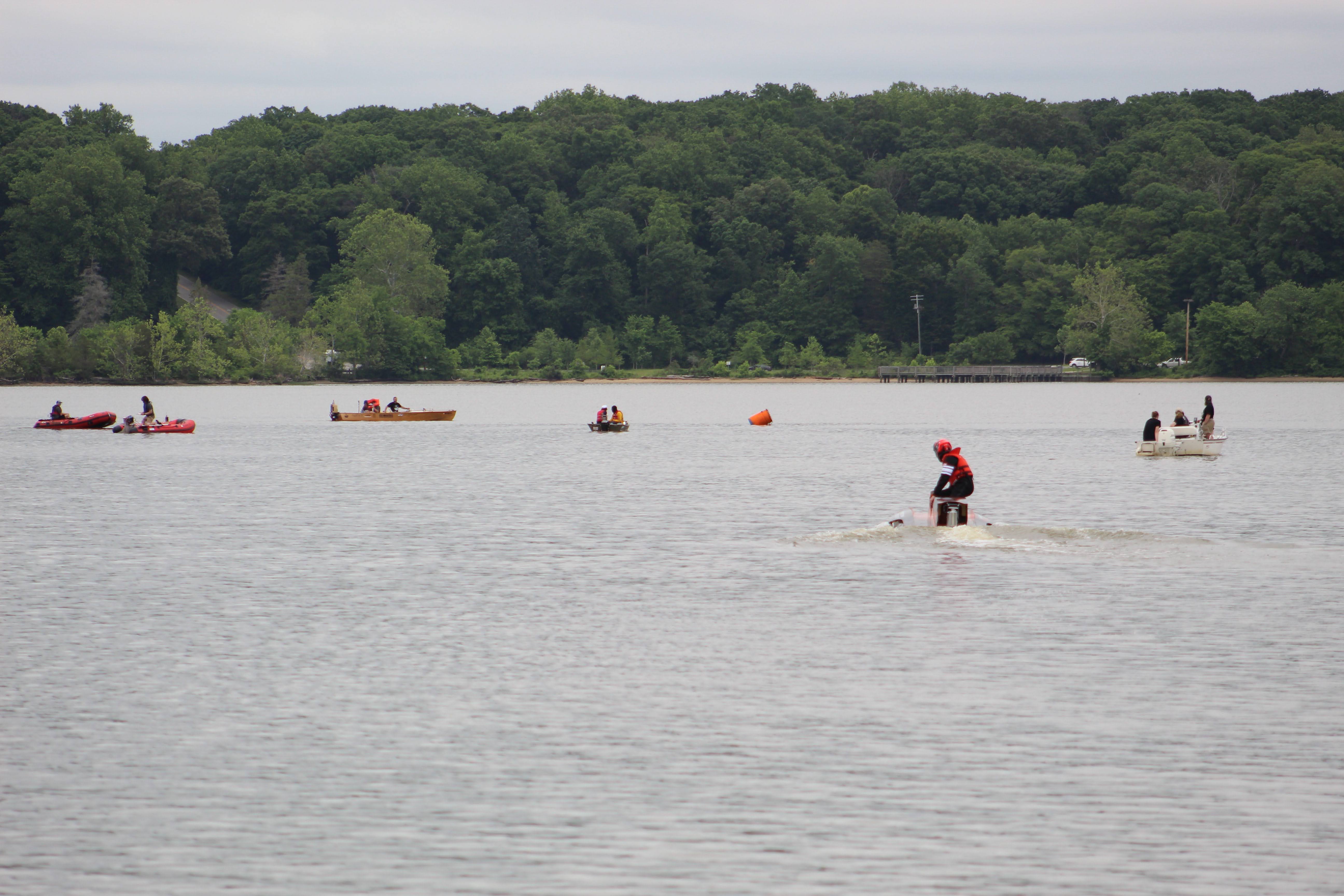 In July 2021, there was no University of Pittsburgh PEP team, but there were two corageous students attending the Multi-Agency Craft Conference in Baltimore and learning from the PEP 2021 competition. Eight short months later, this team put in a solid showing with a confident third-place showing. This team was first on the scene on race morning and worked well together on the shore to get the craft in shape. (They even worked well together on the course, addressing a mid-race issue and getting back to full speed.)
In July 2021, there was no University of Pittsburgh PEP team, but there were two corageous students attending the Multi-Agency Craft Conference in Baltimore and learning from the PEP 2021 competition. Eight short months later, this team put in a solid showing with a confident third-place showing. This team was first on the scene on race morning and worked well together on the shore to get the craft in shape. (They even worked well together on the course, addressing a mid-race issue and getting back to full speed.)
Student leader Nick Genco has created a climate of collaboration and joy within his team and connectivity and expertise within the naval engineering community that is supporting the growth of this team. It has been impressive to watch this team form, plan, design, fabricate, identify sponsors, and compete over the school year. The foundation for this group is so strong looking ahead. Not only does this team have people and craft embued with naval engineering expertise; they are building connections across Pittsburgh, western PA, and the national naval engineering community.
To sponsor and support this team, please contact the team via their website, https://www.pittelectricpropulsion.com/
This great video was created by the team themselves.

Unmanned Competition
2022 Unmanned Champions: Texas A&M
Time: 5 miles in 17:42
Five teammates and a well-tested craft made the journey from College Station, Texas to Occoquan, VA. Their craft set the speed mark for the day in the first heat, and it was never beat. The two seniors and three juniors worked together well; putting their deep engineering knowledge into the design and beginning testing/iterating during the winter months. The planning and hard work paid off with a trustworthy craft that was well designed to meet the expectation of the competition.
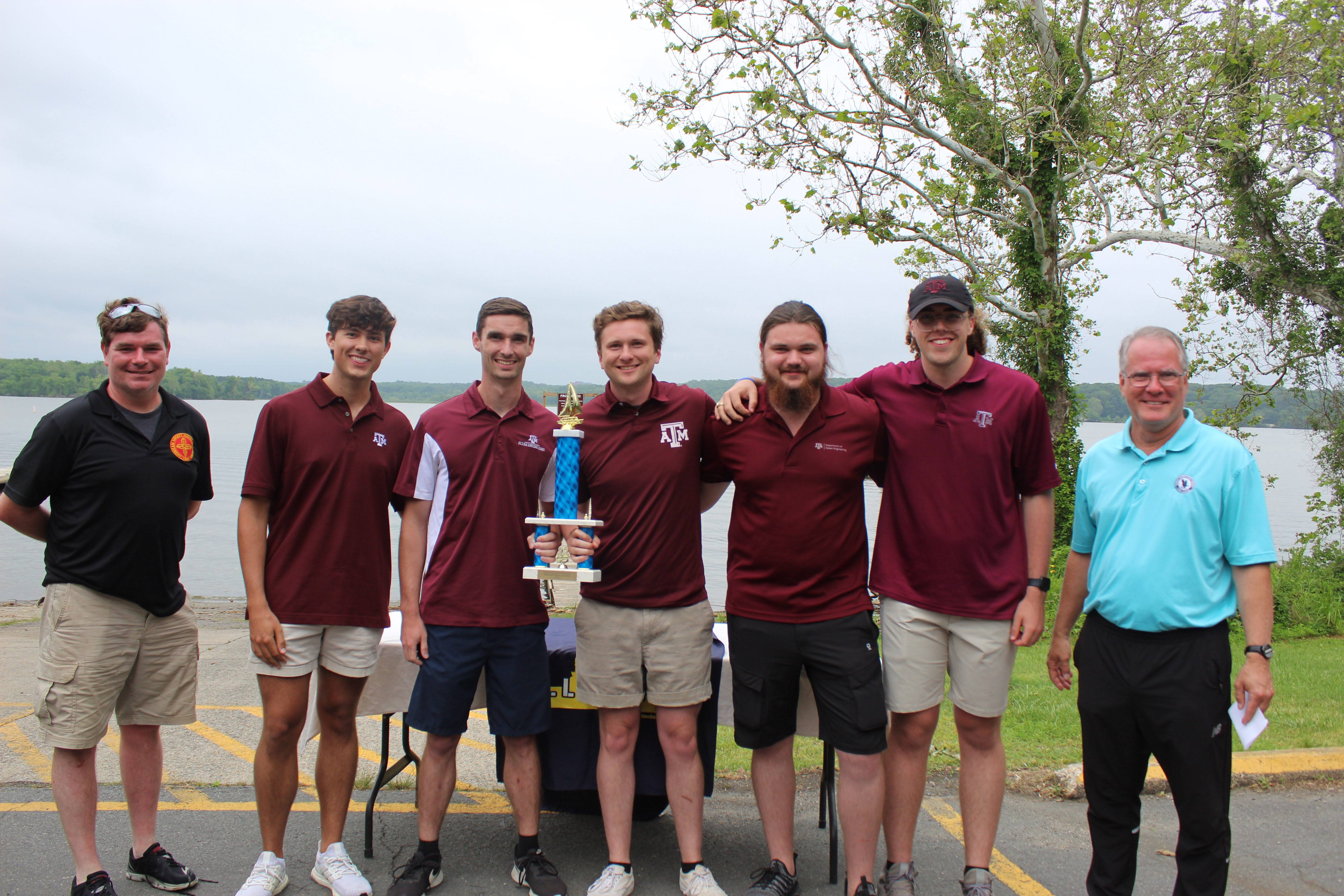 During the testing session the day before the competition, the group was able to try out the craft, ensure everything was functioning as it was in Texas, and feel confident in their race-day competition. On the day of the race, their craft was ready to go early, and it's pontoon-like designed allowed for a stable foundation for the well apportioned motors that powered the craft evenly and efficiently.
During the testing session the day before the competition, the group was able to try out the craft, ensure everything was functioning as it was in Texas, and feel confident in their race-day competition. On the day of the race, their craft was ready to go early, and it's pontoon-like designed allowed for a stable foundation for the well apportioned motors that powered the craft evenly and efficiently.
As the team transitions leadership, we know that this team will continue to lead the way for unmanned propulsion designs. We can't wait to see the improvements in the future competition!
2022 Unmanned 2nd Place: Stevens Institute of Technology
Time: 1.9 miles in 40:00
This team drove from graduation to Pohick Bay, showing their dedication and responsibility. They built from a good foundation from the 2021 competitors with a brand new motor design and reconfigured hull design. This speedy craft had a well-tested hull and a strong propulsion system. Aiden McEnroe expertly navigated the craft using the remote control system through the course. 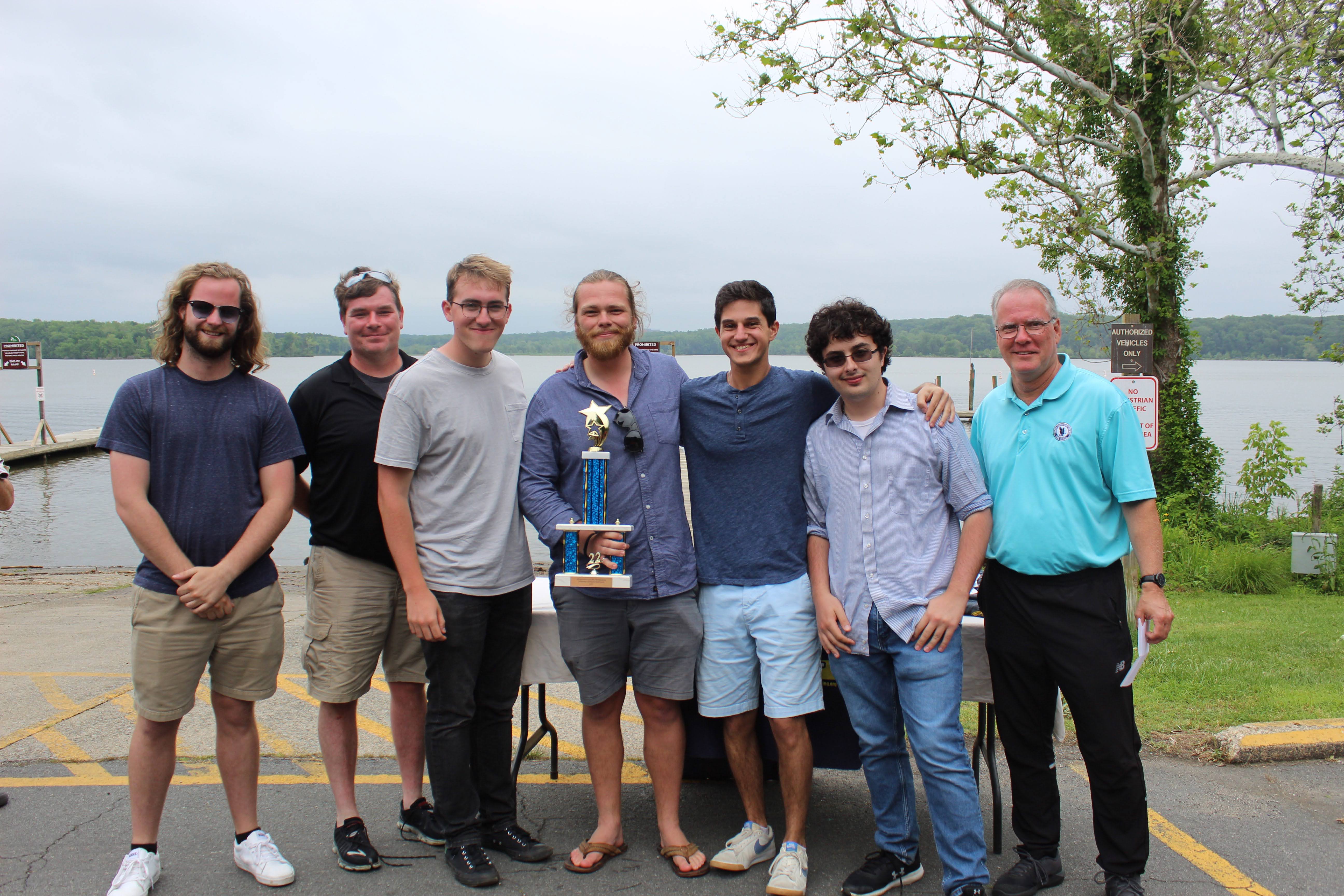 The craft used a water-propulsion system with two motors to evenly propel the craft through the Virginia waters. This craft had already withstood vigorous testing in the Hudson to ensure race day was a success.
The craft used a water-propulsion system with two motors to evenly propel the craft through the Virginia waters. This craft had already withstood vigorous testing in the Hudson to ensure race day was a success.
Dr. Datla, retired astronaut Bill Shepherd, and the entire Stevens Institute staff provide expert guidance and resources to ensure the PEP senior design teams continue to experience success. It's a joy to work with these teams, and see the expert engineers that Stevens continues to add to our industry.
To support this team, please reach out to Dr. Datla.
2022 Unmanned 3rd Place: Johns Hopkins University
Time: 1.85 miles in 40:00
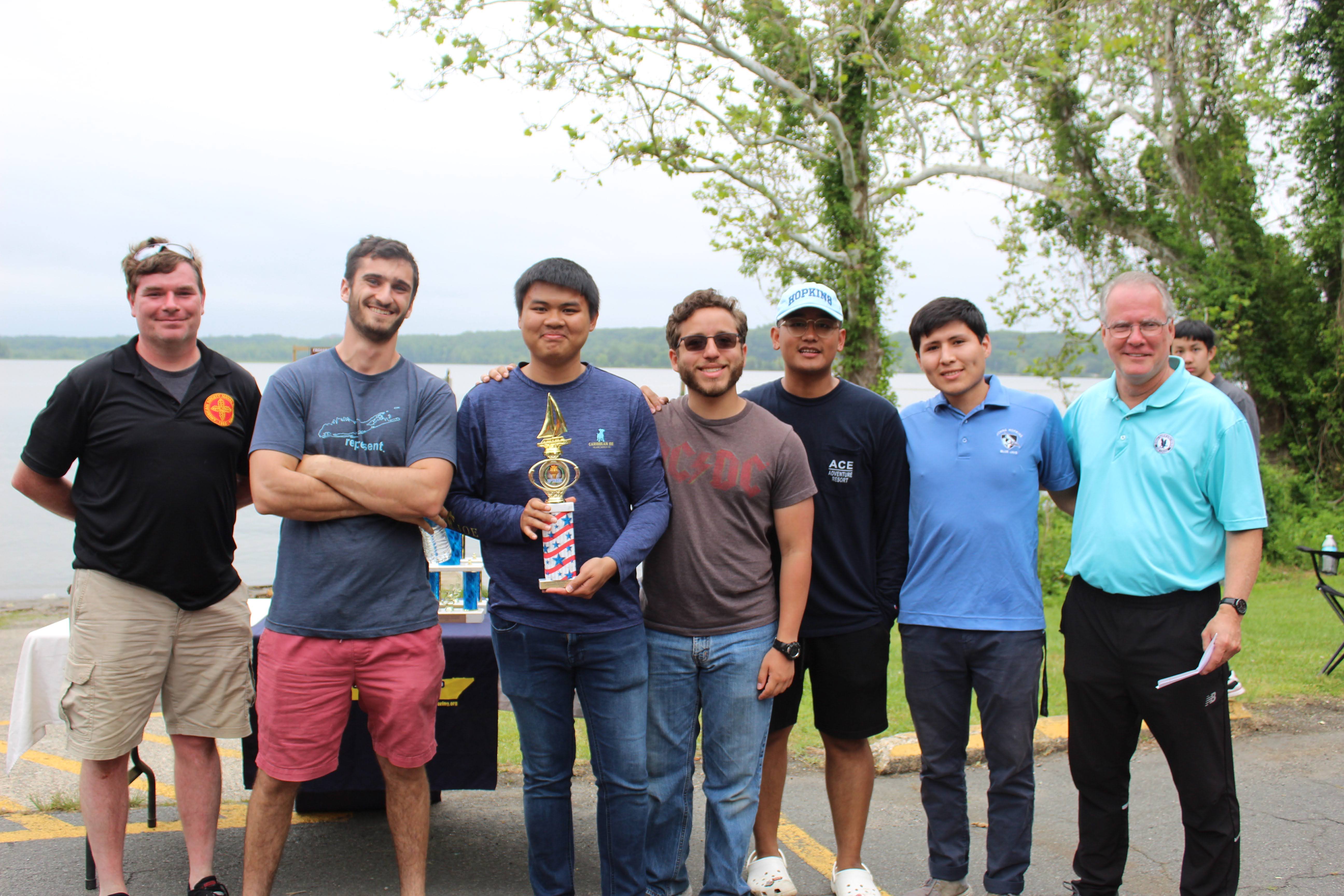 This team formed in Fall 2021 and quickly set up a strong design using a surfboard baseline. Their early control testing began in the middle of the fall semester as they tried out their system on an RC platform in a local parking garage. The team continued to find ways to build and test components through the fall. They were able to machine (and re-machine) key components of their propulsion system and truly work through each system thoroughly.
This team formed in Fall 2021 and quickly set up a strong design using a surfboard baseline. Their early control testing began in the middle of the fall semester as they tried out their system on an RC platform in a local parking garage. The team continued to find ways to build and test components through the fall. They were able to machine (and re-machine) key components of their propulsion system and truly work through each system thoroughly.
We are excited to welcome new leadership to this team in 2022-2023 as Dr. Belkoff in the Hopkins' ME department spearheads the team. Please contact Dr. Belkoff if you would like to further support the Johns Hopkins team.
Manned Competitors
North Carolina A&T
It was such a great pleasure working with Dr. Akangah this team. The team worked off some of the efforts of the 2021 team that built, but did not race a design. This team was able to fabricate a very strong system for protecting and connecting the innovative battery pack design. In addition to high-quality designs, the team, and its supporters, showed real joy and excitement throughout the racing experience. They met with ASNE staff in our offices the day before the competition, met us at the boat ramp for the day-before practice, and were showing off their beautiful truck throughout the race-day experience. They worked hard, rocked a well-earned captain's hat, and demonstrated their true success as engineers. Every engineer attending saw the ruggedness and durability of their design. It was a safe design that could be counted on throughout the race. A great success!
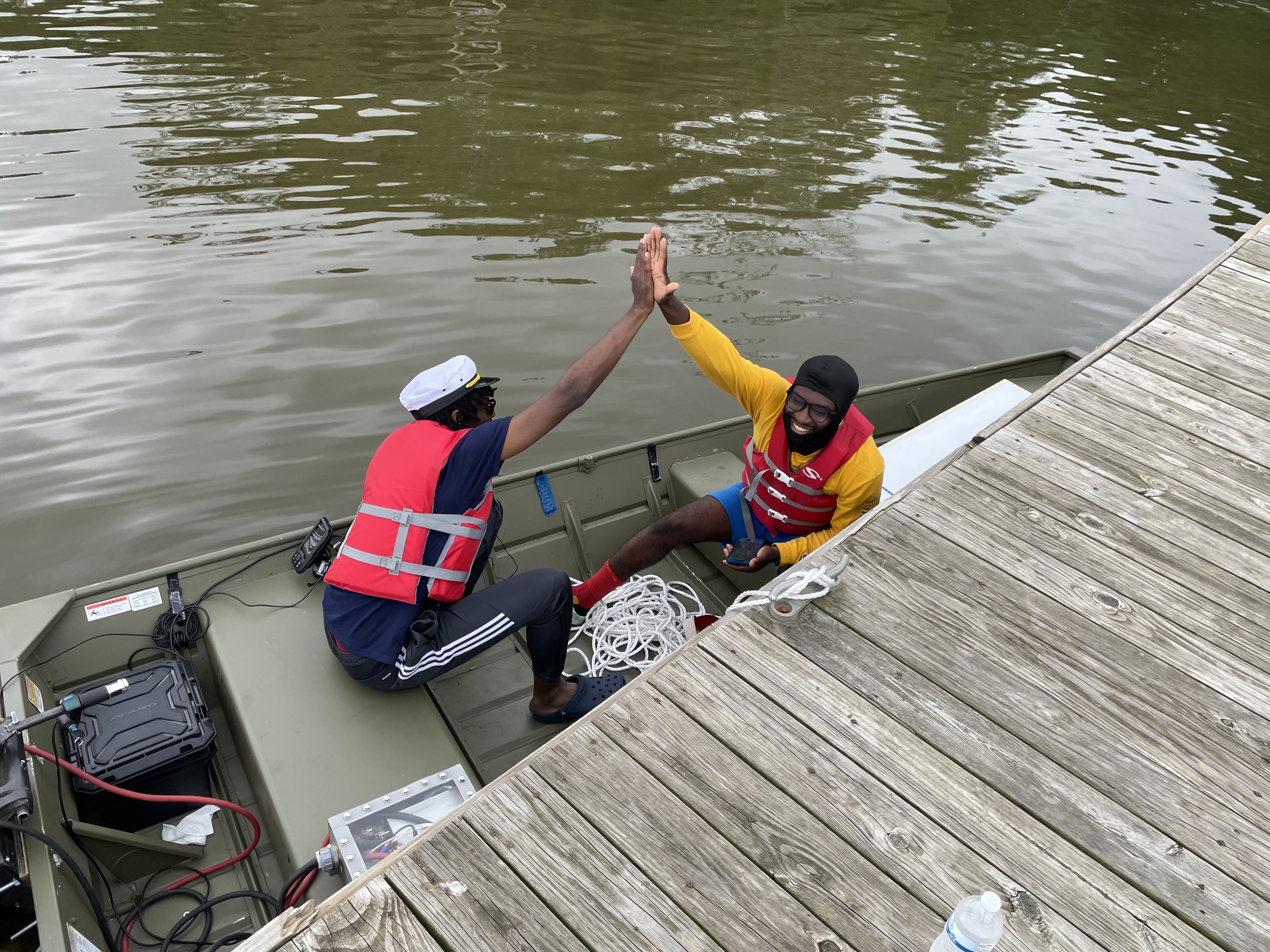 The ongoing growth of the North Carolina A&T engineering department is truly exciting. In particular, the new multi-million dollar Good Jobs Challenge dovetails nicely with the career paths that are
The ongoing growth of the North Carolina A&T engineering department is truly exciting. In particular, the new multi-million dollar Good Jobs Challenge dovetails nicely with the career paths that are
If you would like to support this team during this school year, please contact Dr. Akangah.
University of Kentucky
It has been great working Dr. Hannemann and the entire UK community. This team was able to work with the local engineering community to secure a hull that was a great baseline for this team (and future UK teams to come). This team built a resilient, flexible design that was able to take on a variety of race-day challenges. Originally, the team conceived this boat as a remote-operated vehicle, but given some challenges on race day they met as a team, devised a team to adapt the design, and put this boat on the water with a brave captain and a strong plan. The boat worked flawlessly.
 It was great seeing the team come together over the year and demonstrate that journey in eight hours at Pohick Bay. Kentucky students have shown great engineering accumen over the years, and this team was no exception. They not only built a great craft, but created a set of resources that will ensure future UK teams are competitive.
It was great seeing the team come together over the year and demonstrate that journey in eight hours at Pohick Bay. Kentucky students have shown great engineering accumen over the years, and this team was no exception. They not only built a great craft, but created a set of resources that will ensure future UK teams are competitive.
If you would like to support the fourth (!) UK PEP team in 2022-2023, please contact Dr. Hannemann.
Princeton Manned Team
Nathan Yates has been a great student leader for the PEP competition over the last two years, and this year's Princeton team showed the diversity of talents and materials that this team has started to assemble. During the 2021 competition, the Princeton PEP team worked in sync racing to put the finishing touches on the craft in Baltimore. This year, the team showed up ten times larger, with the same level of teamwork, and a year's worth of design and build. This craft was fast, and showed an elegant design that produced efficient speed.
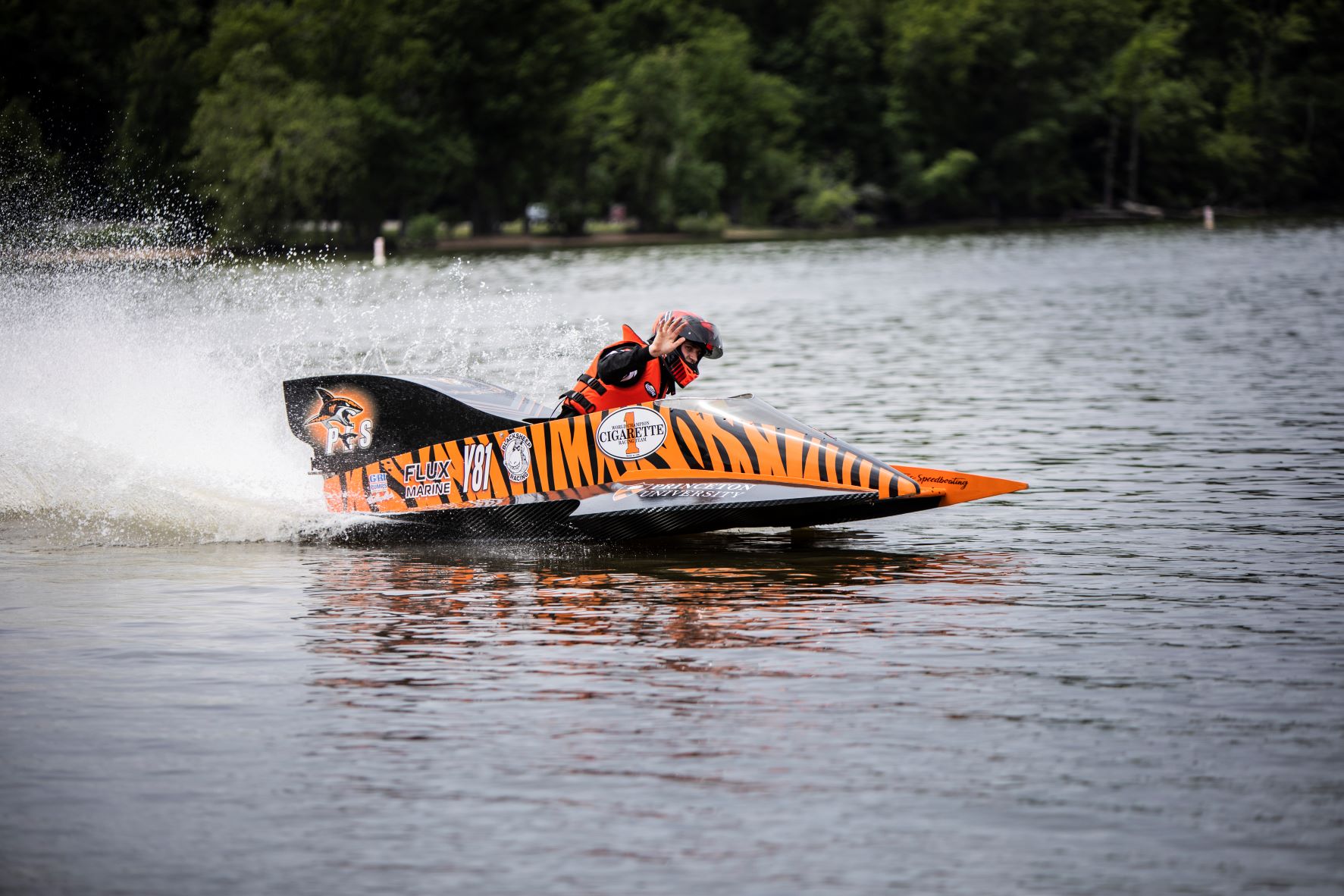 Despite setbacks on race day, this team continues to grow, mature, and design for the future of electric propulsion. We spoke with many of the teammates, and were excited to learn about the team members' diversity of expertise and educational levels. This team composition bodes well for the team's continued growth and development in the future years. In particular, the support of the Princeton community behind these student teams is truly wonderful and a key resource in future years.
Despite setbacks on race day, this team continues to grow, mature, and design for the future of electric propulsion. We spoke with many of the teammates, and were excited to learn about the team members' diversity of expertise and educational levels. This team composition bodes well for the team's continued growth and development in the future years. In particular, the support of the Princeton community behind these student teams is truly wonderful and a key resource in future years.
If you would like to support the Princeton manned and/or unmanned teams, please contact us and we will connect you.
University of Michigan e-Jetski
This team built from a strong 2021 platform to build a craft that traveled at a high rate of speed in San Francisco Bay. This team led by Ryan Needle comprises of a hard-working group of engineers that has completely transformed a jetski into an electric-powered craft that operates at speeds you would expect in a traditional jetski design.
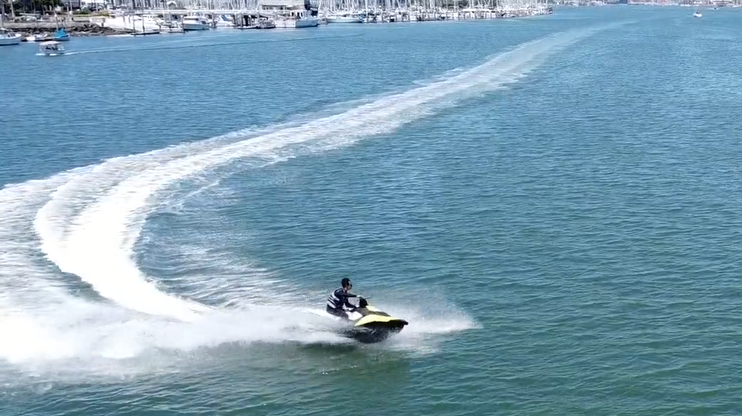 The ASNE community was so excited to hear about the internships at California-based companies spearheading electric propulsion the United States. They took their craft west with them and continued to work on its design and hone their own skills in leading engineering programs in the future. We cannot wait to see this craft in person soon. So many successes to celebrate!
The ASNE community was so excited to hear about the internships at California-based companies spearheading electric propulsion the United States. They took their craft west with them and continued to work on its design and hone their own skills in leading engineering programs in the future. We cannot wait to see this craft in person soon. So many successes to celebrate!
Please reach out to the Michigan e-Jetski team to support their growth in the upcoming year.
Unmanned Competitors
Michigan Electric Boat 
This boat was the talk of the competition. The hydrofoil design was particularly advanced, and the systems required to operate this 550-kg craft remotely appeared robust. Leadership from Captain Deven Parmar and Chief Engineer Sean Hickey provided the organization needed to manage all these systems. This craft had many sponsors, and their contributions were well rewarded with an advanced design, quality components that can be used for years, and dozens of well-educated engineers ready to lead the future workforce. We are truly excited about their hard work and results.
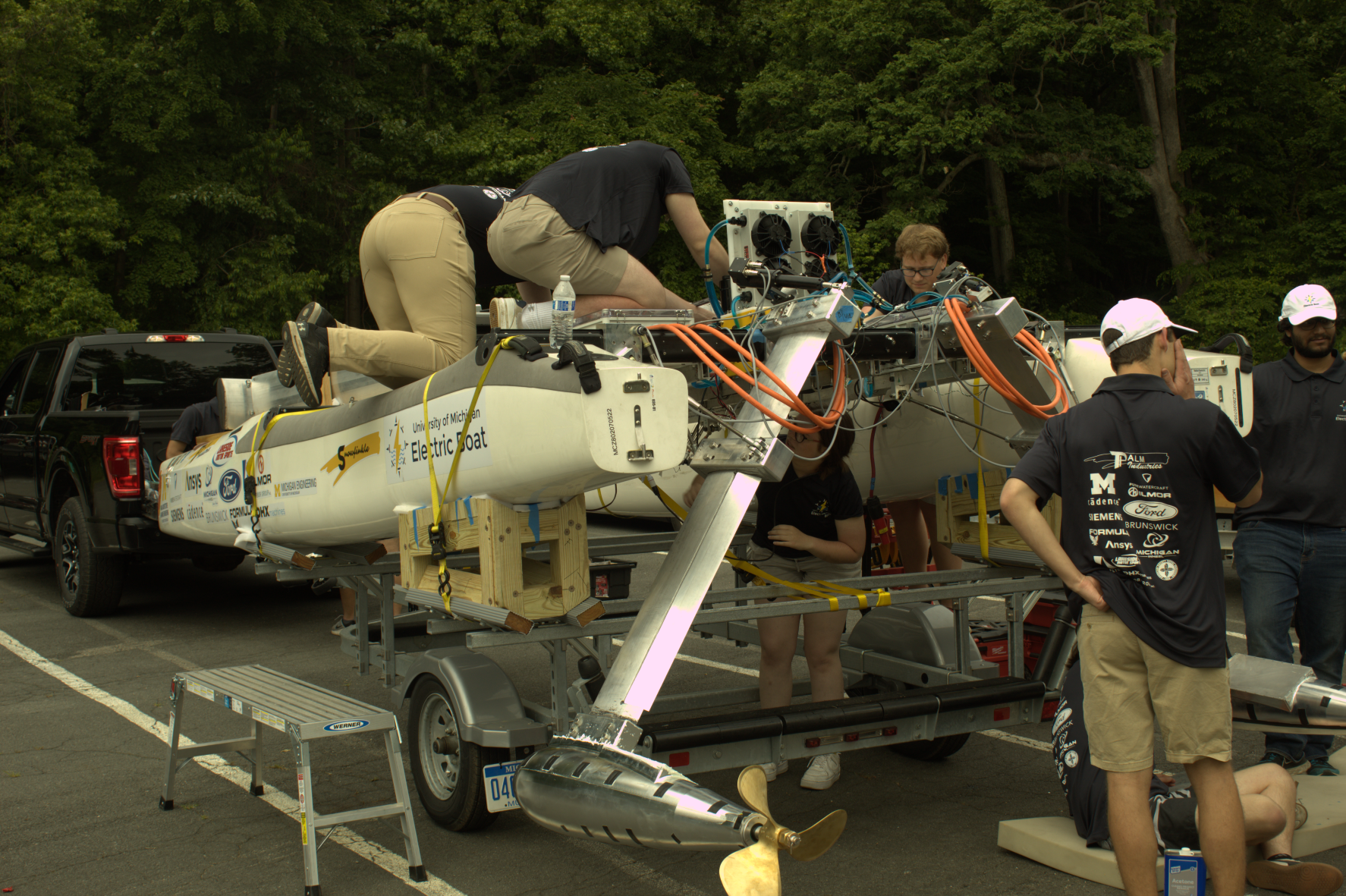 The entire ASNE community is so impressed with the multi-team design structure of Michigan Electric Boat to the point that we are working with our funding community to help other groups see the value of this team's design. The Business Development group, led by Mitchell Davidson, working with a group of talented business development student experts has provided a stable financial backbone to this team's efforts. The team leads are each providing the organization, expertise, and collaborative spirit to ensure the team's accomplish their goals in the timelines provided. (If you missed it, Ethan Almquist was one of the presenters at ASNE's Advanced Machinery Technology Symposium in July 2022.) We are truly impressed by the way this team operates, and sees this group as an exemplary model for all universities to emulate.
The entire ASNE community is so impressed with the multi-team design structure of Michigan Electric Boat to the point that we are working with our funding community to help other groups see the value of this team's design. The Business Development group, led by Mitchell Davidson, working with a group of talented business development student experts has provided a stable financial backbone to this team's efforts. The team leads are each providing the organization, expertise, and collaborative spirit to ensure the team's accomplish their goals in the timelines provided. (If you missed it, Ethan Almquist was one of the presenters at ASNE's Advanced Machinery Technology Symposium in July 2022.) We are truly impressed by the way this team operates, and sees this group as an exemplary model for all universities to emulate.
Please check out their site https://umeb.engin.umich.edu/ and consider supporting this great group of engineers.
Princeton Unmanned
The Princeton manned and unmanned teams worked together tirelessly. We know that the large team and strong Princeton community behind these teams ensure that the work will continue to grow and mature in future years. Here is the write-up that first appeared in the manned section.
Nathan Yates has been a great student leader for the PEP competition over the last two years, and this year's Princeton team showed the diversity of talents and materials that this team has started to assemble. During the 2021 competition, the Princeton PEP team worked in sync racing to put the finishing touches on the craft in Baltimore. This year, the team showed up ten times larger, with the same level of teamwork, and a year's worth of design and build. This craft was fast, and showed an elegant design that produced efficient speed.
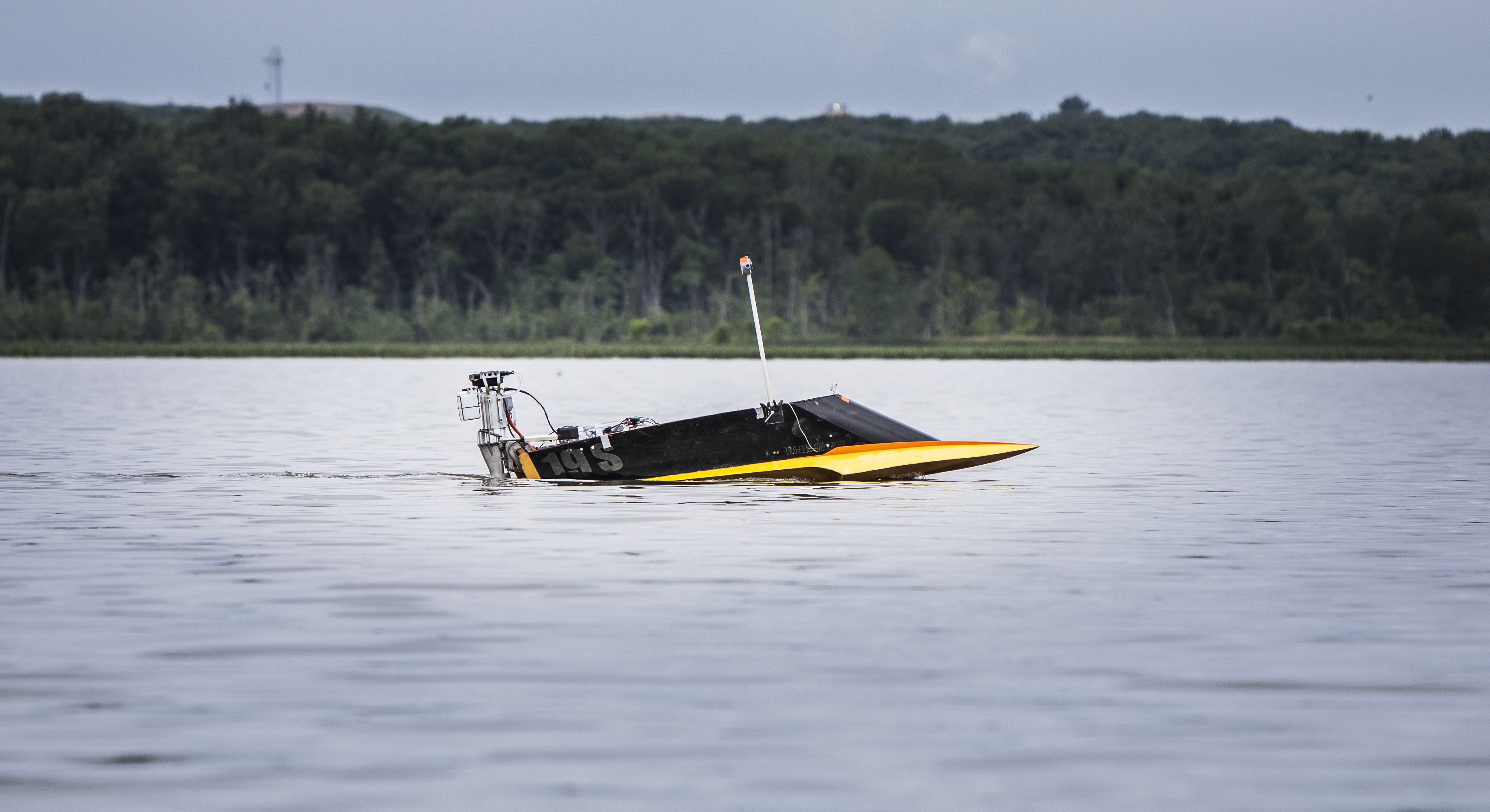 Despite setbacks on race day, this team continues to grow, mature, and design for the future of electric propulsion. We spoke with many of the teammates, and were excited to learn about the team members' diversity of expertise and educational levels. This team composition bodes well for the team's continued growth and development in the future years. In particular, the support of the Princeton community behind these student teams is truly wonderful and a key resource in future years.
Despite setbacks on race day, this team continues to grow, mature, and design for the future of electric propulsion. We spoke with many of the teammates, and were excited to learn about the team members' diversity of expertise and educational levels. This team composition bodes well for the team's continued growth and development in the future years. In particular, the support of the Princeton community behind these student teams is truly wonderful and a key resource in future years.
If you would like to support the Princeton manned and/or unmanned teams, please contact us and we will connect you.
PEP in the Press
Send us any news we missed!
Some Last Thoughts About PEP 2022 Other PEP 2022 Artifacts
PEP: Powering the Future Workforce
The Naval Engineering community needs a more diverse, energetic workforce ready to tackle modern problems. PEP empowers students with knowledge and real-world experience. This senior project is consistently one of the most sought-after options in ME departments. This program brings new perspectives and new voices to the naval engineering, and prepares them to be successful upon graduation.
These universities and ASNE's form two legs of a three-legged stool that includes industry. These teams need industry partners to provide mentors, in-kind donations, and a window into professional naval engineering. These student teams are meeting virtually throughout Fall 2020 providing a unique opportunity for professionals to join the conversation for an hour or two, and help guide the future naval engineering workforce.
PEP includes over 230 college students in universities across the country. They need our help to complete this education and find their career.
Race-Day Memories
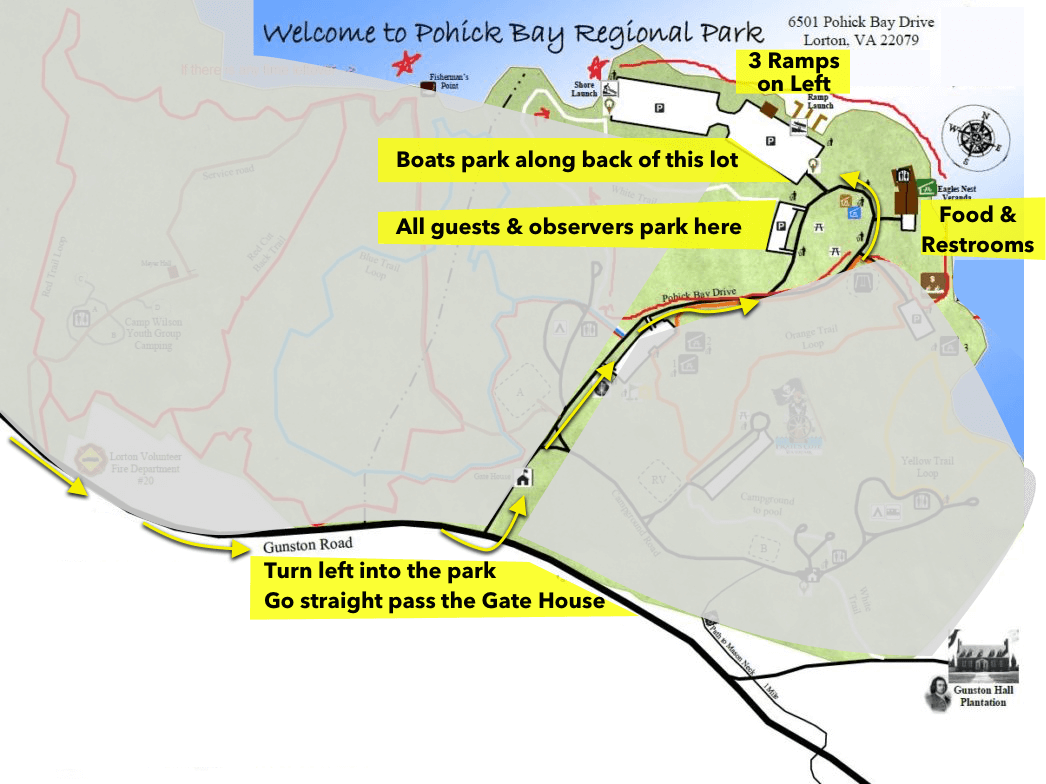
More About PEP
The Overview
Promoting Electric Propulsion (PEP) for Small Craft is an educational and competitive program to foster the development of electric boats in the United States. College teams are granted up to $7,000 and put in touch with mentors and online learning to ensure they can safely construct an electric-powered boat that can complete a five-mile race. If you read this material and still have questions, please contact us at education@navalengineers.org. The third PEP competition will be held May 2022 in the mid-Atlantic region. You can sign up by today by completing this application.
Interested in joining in the fun? The PEP program is still adding a couple more teams for the 2022-2023 competition. We give grants to schools to help them compete in PEP and connect them with industry experts over the course of the year to facilitate their designs and fabrications. Students conceive, design, build, test and race their own craft for a five-mile race.
Questions/Comments/Suggestions? Email education@navalengineers.org!